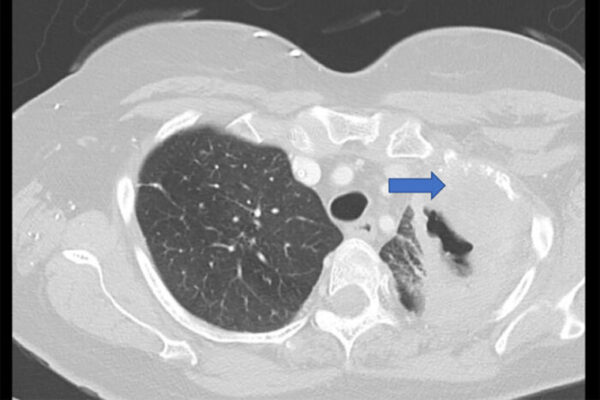Bemis named vice chancellor for human resources, institutional equity
Scot R. Bemis, most recently vice president for human resources and chief human resources officer at Dartmouth College, has been named vice chancellor for human resources and institutional equity, announced Shantay Bolton, executive vice chancellor for administration and chief administrative officer.
$5.3 million grant supports research into lung cancer recurrence
A National Institutes of Health (NIH) grant to Washington University School of Medicine will support research into understanding lung cancer recurrence.
‘Requiem of Light’
It’s a grim milestone. More than 1 million Americans have died due to COVID-19. In this video, Rebecca Messbarger, director of medical humanities in Arts & Sciences, discusses “Requiem of Light,” a citywide memorial that she conceived and organized for the thousands of St. Louisans lost to the pandemic.
Gut bacteria mine dietary fiber to release beneficial nutrients
A new study from Washington University School of Medicine found that the fiber byproducts of food production may be an untapped source of beneficial biomolecules that contribute to human health.
WashU Expert: Ethics of sentient AI
Yevgeniy Vorobeychik says discussions about AI sentience are, and always will be, misguided.
WashU Experts: Supreme Court decision will transform American life, politics
Experts from Washington University in St. Louis offer perspectives on the Supreme Court’s decision to overturn Roe v. Wade and the impact it will have on American law, people and politics.
Paré appointed associate vice chancellor for career development and education
Rebekah Paré has been appointed associate vice chancellor for career development and education at Washington University in St. Louis, effective Aug. 15, announced Anna Gonzalez, vice chancellor for student affairs. She joins WashU from the University of Wisconsin-Madison.
Eliot Society members gather for final annual dinner
The William Greenleaf Eliot Society held its 53rd and final annual dinner this spring in honor of Washington University’s group of committed supporters. Chancellor Andrew D. Martin presented the Search Award to James and Elizabeth McDonnell.
SCOTUS ruling hints at why religious freedom means living with views we don’t like
While the ruling in the Maine case is unsurprising given the court’s recent decisions around freedom of religion, some of the rhetoric around the case misrepresents the role of constitutional protections for religion in a pluralistic society, said John Inazu, expert on law and religion at Washington University in St. Louis.
Physical intimate partner violence in Colombia costs $90 million annually
The single-year health burden associated with physical intimate partner violence in the South American country of Columbia was $90.6 million, finds a new study from the Brown School at Washington University in St. Louis.
View More Stories









